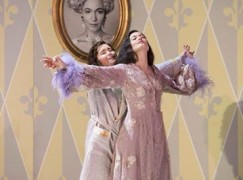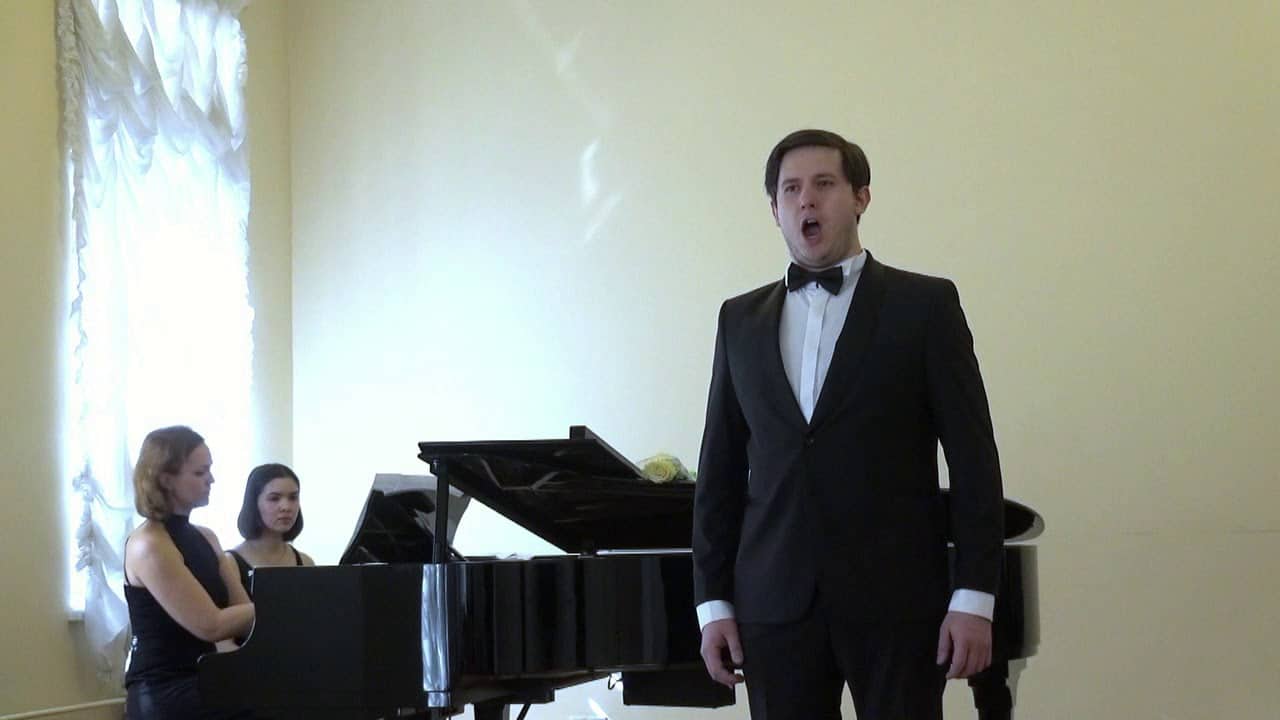‘Dumpy’ singer’s critic: I stand by every word I wrote
mainRupert Christiansen has come out fighting in the Daily Telegraph. He wants you to understand why he was right to call a young singer ‘dumpy’ and to damn her physique as ‘intractable’, which could be taken to mean that she is unemployable on the opera stage.
Rupert believes that body insults are a legitimate part of the critical repertoire. Many will consider that indefensible.
You may read read his argument in full here. Many will find them indefensible. But credit Rupert with the courage to come out into the open and engage with the issues.






Actually, he emphasises that this singer’s physique is anything but a bar to success in a range of roles (he mentions several by name). We don’t have to agree with him, but it’s the opposite of implying that she’s “unemployable on the opera stage.
Ok, I will say it: Bravo, Rupert Christiansen! Both for defending your right to review what appears in an opera production on an opera stage and for bringing up a point most of those braying for your blood have not: the suspension of belief necessary in much of opera and in trouser roles in particular.
I was amazed at comments on another thread about singers losing self-esteem and the host of insulting words and phrases thrown at the critics involved in this matter. It is surely self-evident that anyone who elects of their own free will to take part in any staged production lays themselves open to comments being made about the shape of their body – specifically in relation to the role they are playing. One will always hope that these are kept to a minimum in relation to other aspects of the artist’s singing and acting abilities; but to suggest that height and weight are out of bounds when a role and production are being reviewed is surely being overly-sensitive – at the very least!
I have never had the pleasure of hearing Ms. Erraught. It was a name unknown to me. I will not see her in Rosenkavalier as I just do not enjoy Mr. Jones productions. That is perhaps my failing. But now that I know about Ms. Erraught, I will eagerly look forward to hearing her in due course.
Agreed on his right to say it, and to defend his position. I hold no brief for Christiansen; his metropolitan snobbery has frequently riled me in the past. There are far kinder and more tactful ways of addressing the issues he perceives here, and (in my view) the comments about Kate Royal really crossed a line.
But this debate hasn’t been particularly edifying on either side; there’s an important issue to discuss, but instead we’ve had
– assertions that opera is solely about the voice (self-evidently, nonsense).
– claims that these critics never comment adversely on the appearance of male singers (demonstrably untrue).
– abusive comments about the critics’ appearance and sexuality (two wrongs don’t make a right).
– the usual kneejerk attacks on an entire school of contemporary opera production (irrelevant).
– off-the-peg general critic-bashing (from artists who are generally more than happy to cite reviews in their own biographies and websites, when those reviews are to their liking)
– calls for certain individuals to be banned from this opera house (presumably soon to be extended to any dissenting voice).
We’ve reached a point where this debate is generating far more heat than light. Christiansen raises some interesting general points here, and his position is largely defensible, even if not to everyone’s taste (I feel he’s clutching at straws in his latest comments about Ms Royal). But it won’t be a helpful contribution because – let’s be honest – far fewer people will read it dispassionately than will simply react off-the-cuff to the first filleted précis they see in a blog headline or tweet. And so we continue…
I will repeat what I suspect most are saying. His word choice was exceedingly poor. His point – the unsuitability of a singer for a role – could have been made without resorting to words and descriptions that are rude and clearly personal.
It is his right – indeed, his duty – to note if he feels a role was miscast, the costuming was poor, or any other related matter.
I suggest that Mr. Christiansen think harder about adjectives. I’m sure he can manage to write a review that does not need to use words like “dumpy.”
I find it extremely hard to believe that Mr. Christiansen stands behind that particular word and its tone. The fact that he does so undermines all else that he wrote.
Having been a long standing opera goer I am totally amazed by this furore. Glyndebourne actually introduced us to Montserrat Caballe and Jessye Norman without creating this sort of unwanted and undeserved criticism of suitability to a role in an opera based on body size and shape. I personally do not care about that , the main thing is the musical performance, the voice and the interpretation of the character. I am always judging a performance forming my opinion without the “guide” of critcs with inflated egos and greatly looking forward to hear and see Ms. Erraught’s Octavian in Glyndebourne.
Mmes Caballe and Norman made their debuts in a totally different era, a point some fail to note. Times change. Like it or not – and many do not, we are in the era of director opera where other considerations come into play. Let’s also remember that some great singers never made it to the opera house, precisely because of physical limitations. I think of Maria Stader, who has delightfully come to the attention of a new generation through the re-release of many of the great Ferenc Fricsay’s recordings. On disc she is superb as the Countess, Elvira, Konstanza and a host of other operatic characters, but her stage appearances were less than a handful. She herself felt that with a height of around 1’45 meters her physical attributes were just not suited to staged performances.
OMG, we can’t say dumpy now?! Do we have to ban the saying, “It’s not over until the fat lady sings?”
In a video of a recent panel discussion at Oxford University, Renee Fleming notes that she watched a production of Rusalka where Song to the Moon was demonstrably marred by the stage actions required of the soprano. After suggesting that she could have sung better with more sympathetic staging, the administrator’s response: “Nobody here really cares about the singing.” In other words, they want the theatrical experience and singing is secondary.
Very sad.
Actually, something has occured to me that may have escaped others’ attention. Perhaps Rupert Christiansen and all the other critics are erotically obsessed with female opera singers of a particular body morphic. Surely, no coincidence that they’re all about the same age (the critics I mean).
Perhaps the next course of action would be to send their collective reviews to Vienna for urgent
Freudian analysis. We await the results with keen anticipation.